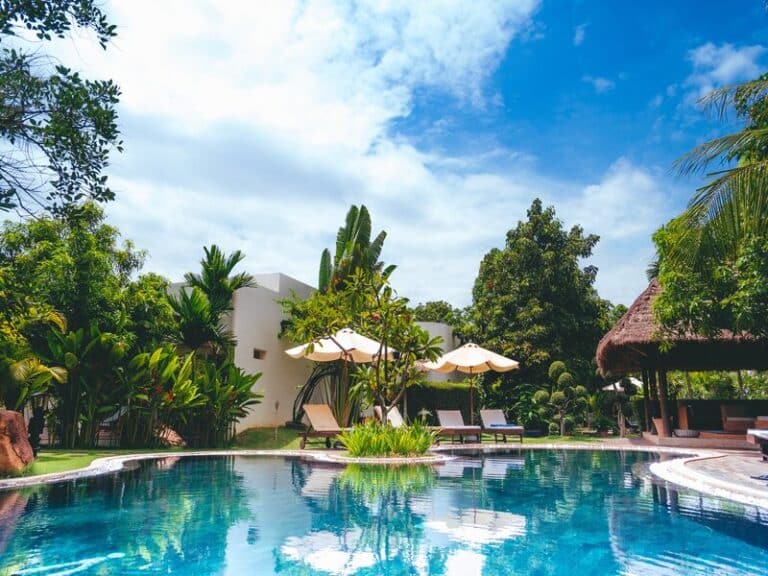A list of important steps when you close your pool
It’s that time of the year when you have to start thinking about closing your pool for the winter months ahead. It is important to properly close your pool for the winter season to prolong its life and make it easier to re-open the pool when it is time. While winterizing a pool is not as complicated as it may seem, there is still a lot more to it than just slapping a cover on it. Keep these simple tips in mind to close your swimming pool quickly and easily.
Choosing the right time to close your pool
If you close your pool too early, it can encourage algae growth. This means cleaning will be much harder for you when you have to re-open the pool. So, it is best to wait at least until late summer. For heated swimming pools, you can wait until October or till the water is above 65 degrees. Remember, closing a pool is not just a day’s task. You will need at least a week if you want to properly close the pool for the season.
Clean everything thoroughly
A lot of pool owners put off the cleaning of pool and equipment until spring. However, thoroughly cleaning the pool equipment before you close your pool will make opening much easier and will prevent dirt and scale build-up inside the pool. Cleaning also prevents chemical corrosion. Vacuum and brush the pool surfaces and skim the water. Do not ignore pool corners, pool lights, the areas around ladders, and other areas with little water flow. You should also clean all the pool equipment including pumps, pool filters, automatic chlorinators, and heaters. If you experience harsh winters in your area, you should try to store your pool equipment indoors.
Test and balance water
Use a liquid test kit or pool test strips to test your pool and then apply the right products to balance your pool water to the recommended ranges. You should pay special attention to pH parameters and Free chlorine levels to ensure that the water is sanitized and that the pool equipment is protected. You’ll want the free Chlorine to be between 1 – 4 ppm, alkalinity to be between 100 and 150 ppm, and pH between 7.4 and 7.6.
Add winterizing chemicals
The winterizing chemicals you will add to your swimming pool include an alkalinity or pH increaser, winter algaecide, and chlorine shock. It is suggested that the chlorine shock should be added about a week before closing the pool. The algaecide should be added just before closing the pool. It is recommended to add a phosphate remover one week before you close the pool. Phosphate remover helps in eliminating algae’s primary food source and prevents potential algae blooms.
Drain Pool Lines
Draining the pool lines is important when you close your pool. If you live in areas with freezing temperatures, adding antifreeze is recommended. This will prevent damaged or burst pipes, which can require costly repairs. Make sure you drain the pool filter, pool pump, pool heater, or any other pool pump, when it is time to close the pool. Once the plumbing is properly drained and plugged, add antifreeze to protect the pipes.
Install a pool cover
Once you have closed the swimming pool for winter, you should install a winter pool cover to protect it from debris, bad weather, and accidental intruders, and to support chemical retention. There are a wide variety of pool covers available and you can choose between a mesh or solid cover. The mesh layer allows water and snow to filter through and sink into the pool and keeps debris on top.
Need help with winterizing and closing your pool? Our professionals are here to help you every step of the way.

